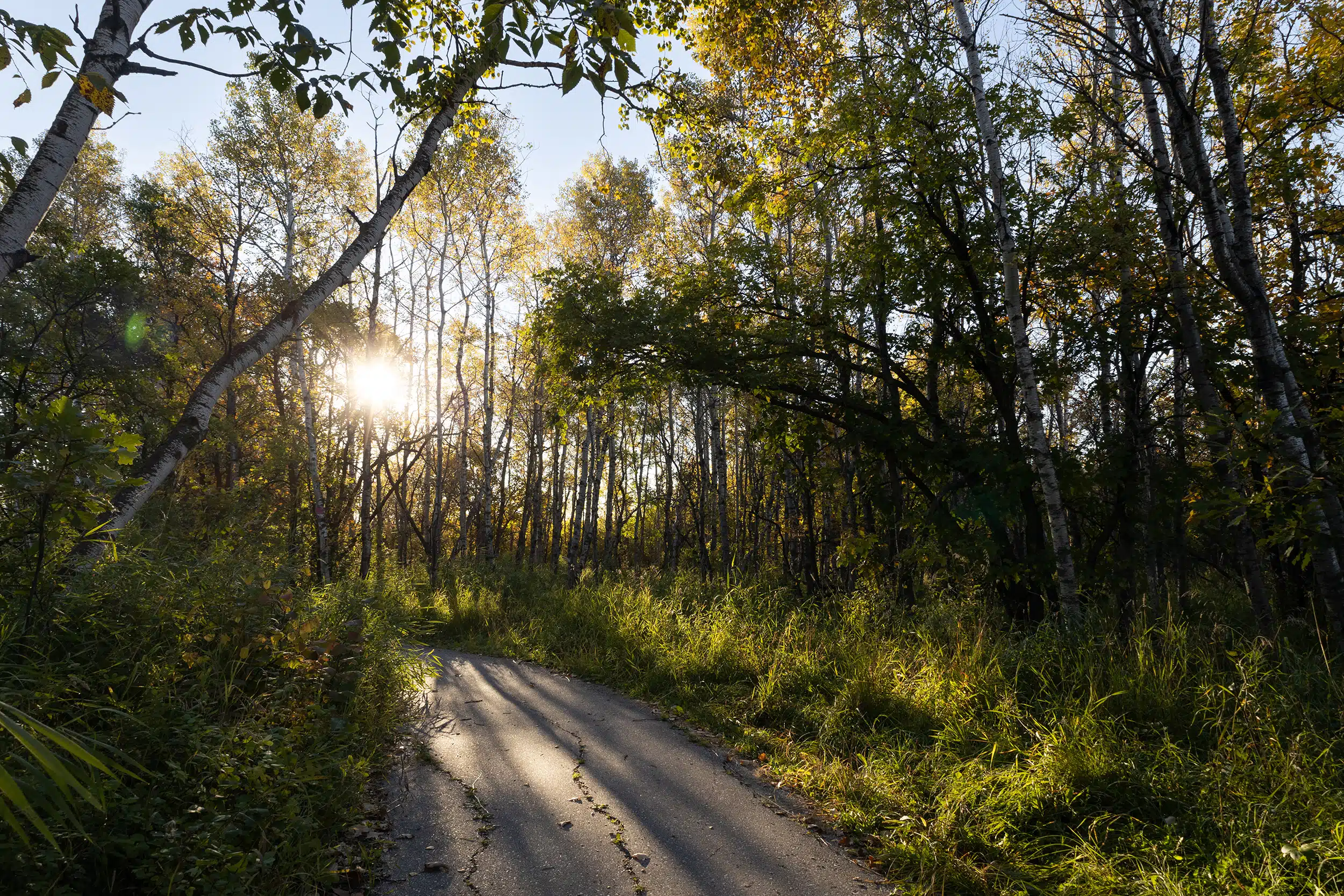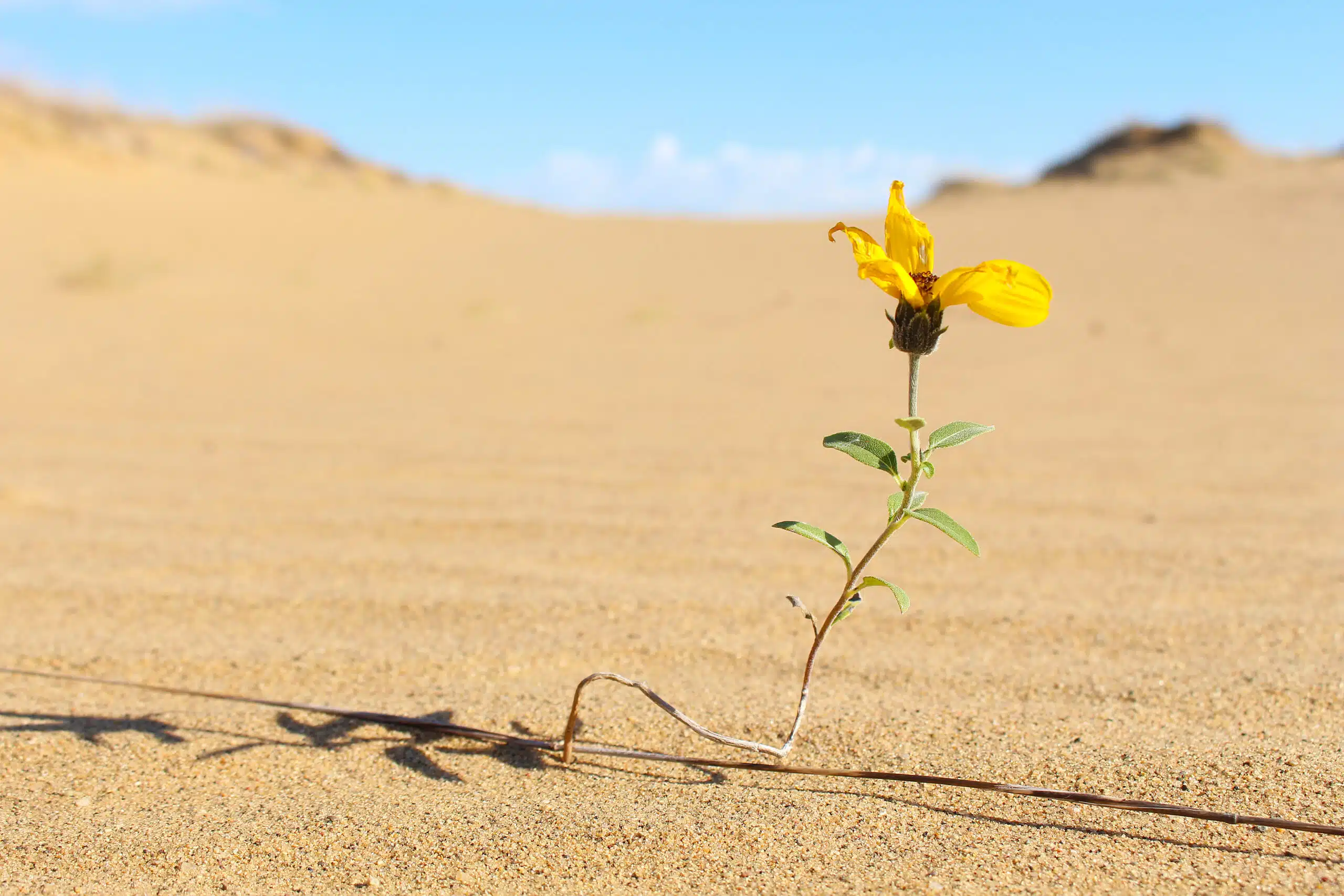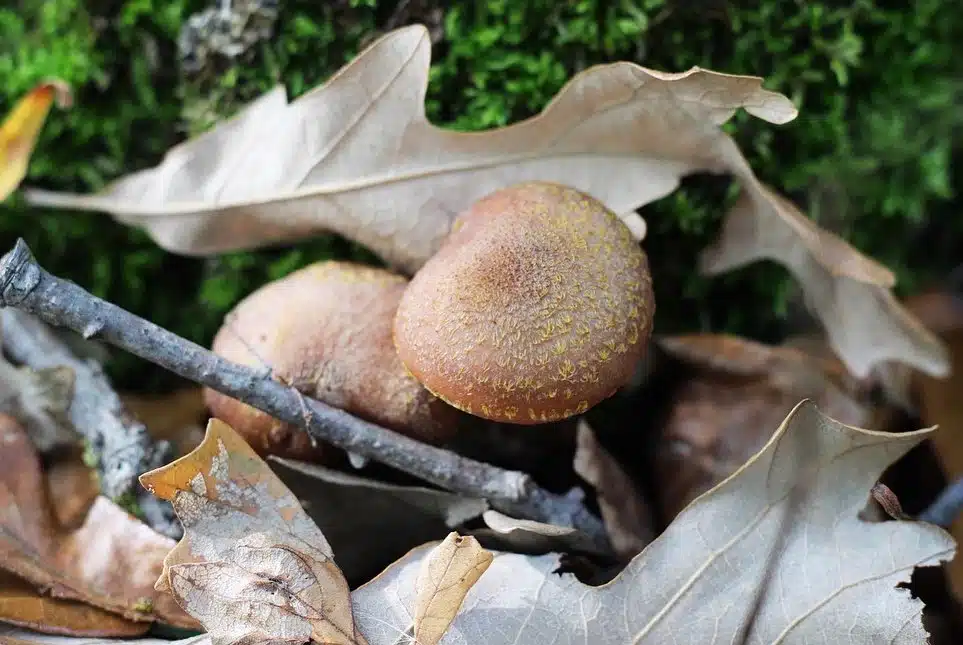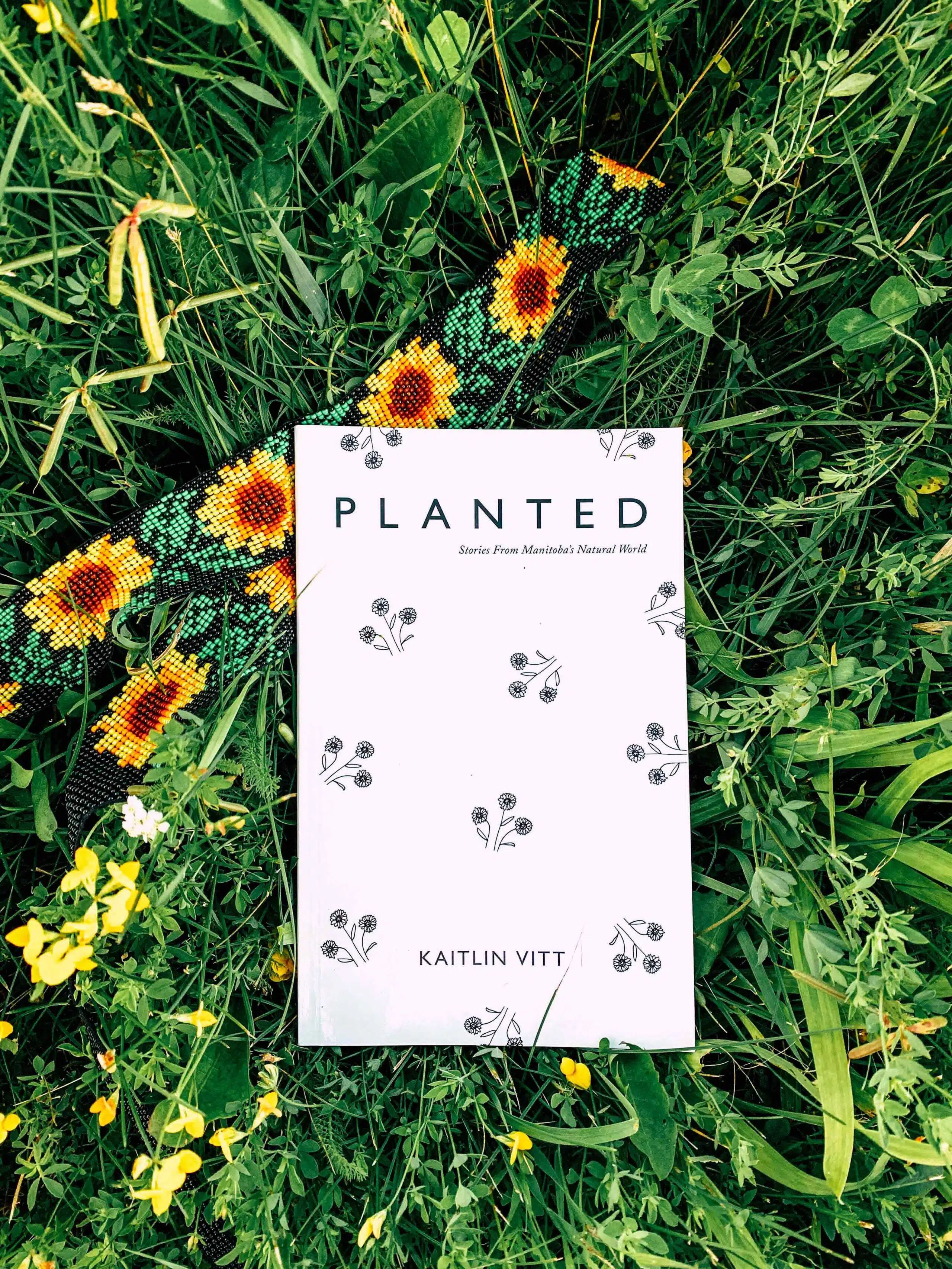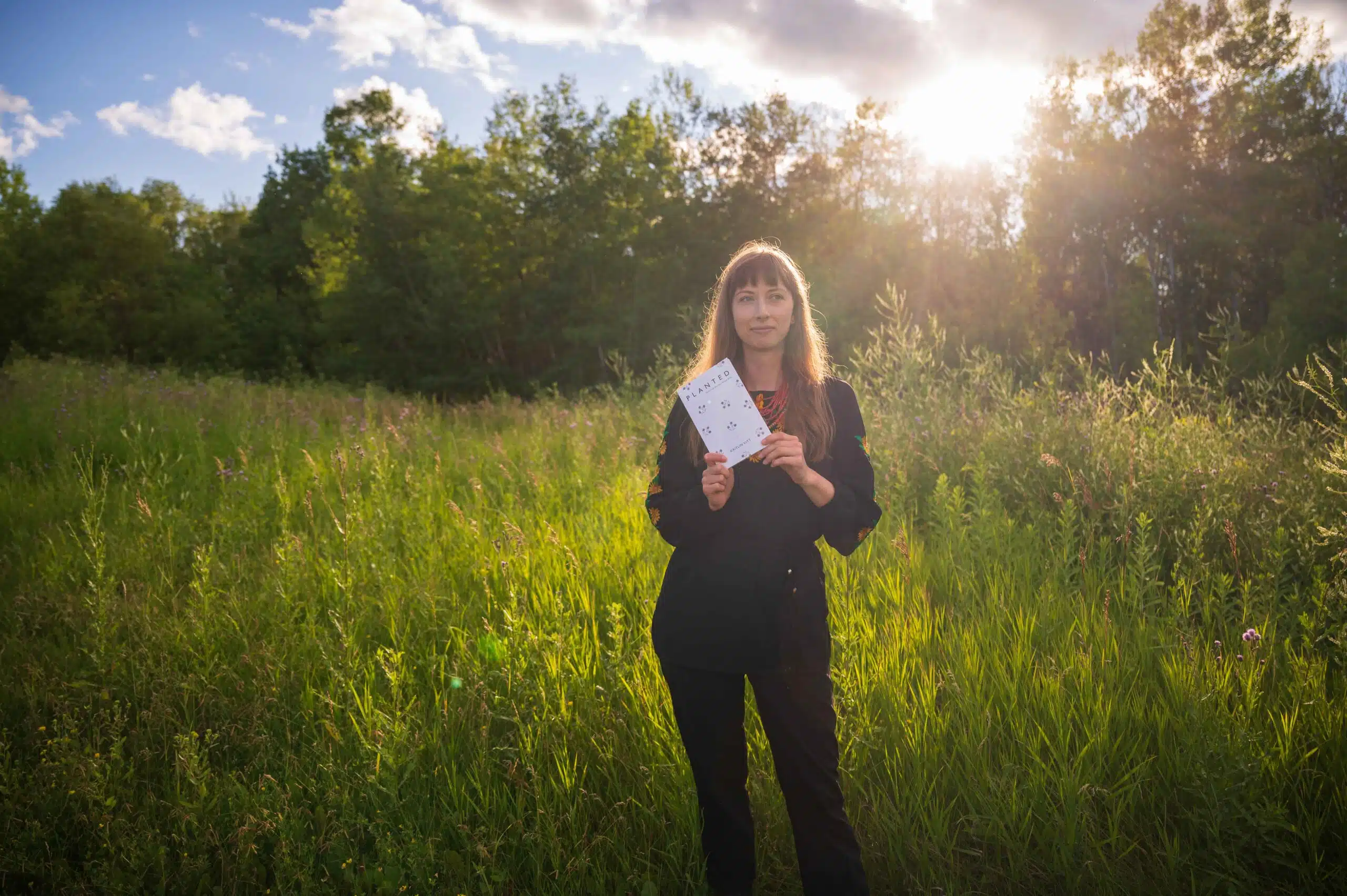
Guest post by Kaitlin Vitt, author of Planted: Stories From Manitoba’s Natural World.
Nature has been one of my greatest teachers in life.
I grew up in an outdoorsy family. I learned the songs of the birds that visited my parents’ backyard, the names of the trees we’d see on walks, and which fish I’d catch when at my family’s cottage.
I also discovered broader lessons that I could apply to my life, like how being in nature made me feel calm and that change is OK and can lead to something better than before.
Though the lessons I’ve learned from nature have shaped my life, I still take them for granted from time to time. But I was reminded of all that we can learn from nature when writing my book Planted: Stories From Manitoba’s Natural World.
In Planted, I share the experiences of eight people who are inspired by nature and have stories to tell because of it.
I first published this book in 2017 and republished it in July 2022 to raise money for aid in Ukraine, the country of my ancestors and the country my friends and family call home.
The updated edition includes a new preface, which explains how my Ukrainian heritage has inspired my love of nature, additions to chapters, and new drawings by illustrator (and my sister!) Rayna Meakin.
I learned a lot from the people in the book and about the importance of protecting the environment. I also learned a lot from nature while working on Planted.
Here are the six lessons that had the biggest impact. I hope they can teach you something, too.
1. Nature Is Healing
Since the pandemic started, a lot of us have been reminded of the importance of spending time in nature.
Being surrounded by trees so tall you can’t see the tops, listening to birds call to one another, feeling the sunshine on your skin, and breathing in the fresh air nature provides brings us into the moment.
This allows us to practise mindfulness rather than letting our minds spiral as we think about our neverending to-do list or the many what-ifs of life.
Besides connecting with yourself, being in nature might even connect you with someone you love, whether they’re with you or not.
Lindsey Emberley, whose story appears in Planted, found healing in nature after her infant daughter, Summer, passed away. Lindsey would go out into the bush when she was feeling down to feel supported.
There have been many times when Lindsey has felt especially connected to Summer, like one day on a walk in nature, when all of a sudden Lindsey was surrounded by butterflies, a symbol that always reminded her of Summer.
As quickly as the butterflies came, they left. Lindsey believes this was Summer showing her a sign.
In Planted, Lindsey shares other experiences where she felt most connected to Summer and emphasizes the importance of being in nature.
“I get stressed like anybody else does, but my way to come back to myself or come back to my roots, or to reconnect or just reset or recharge, is to go outside,” Lindsey said.
“The laundry can wait. Cleaning can wait. Whether it’s going for a walk in the bush, gardening, fishing on the dock, planting my garden — it’s really calming. It’s peaceful.”
2. Everything Is Connected
There are nearly 400,000 plant species in the world. If one dies off, we’re fine, right? There are plenty of others, after all.
But losing one species can have a major effect on an ecosystem.
Take milkweed as an example. It’s the only plant that monarch caterpillars eat — if there’s no milkweed, there are no monarchs, which means fewer pollinators, which are important for human food crops as well as the natural world.
In Planted, Kelly Leask calls milkweed a “poster child” for the importance of biodiversity.
Everything in nature relies on one another, directly or indirectly. Each piece has its own importance, much like each person, and each action they take can have an impact on those around them.
3. Nature Has a Sense of Humour
It seems that sometimes nature just wants you to have a laugh.
Maybe you head out on a walk with your dog and just when you’re reaching your destination, you fall flat on your face in muskeg. But as you get up, spitting muskeg out of your mouth, it all becomes worth it because you see the most beautiful flower you’ve ever seen: a dragon’s mouth orchid.
This is what happened to Les Pelletier — and the natural world played another joke on him when he went out the following year to find the flower again, which you can read about in Planted.
Or maybe you go to a forest to learn about plants in the area after recently moving to Manitoba. You put some flowers in your pocket so you can identify them at home, then carry on with your plant identification outing.
The next day, you develop a terrible rash that keeps getting bigger and bigger — only then remembering the flowers you had put in your pocket the day before.
You pull out your plant identification key and realize that the rash and the flower are connected.
Richard Staniforth told me this story. (You’ll have to read Planted to find out which plant he came across!) Sometimes nature even plays tricks on plant experts, or someone with a Ph.D. in plant sciences, like Richard.
Sadly, Richard passed away in January 2022. I’m honoured to have met him and to hear some of his plant stories. I found not only his love of nature inspiring but also his approach to life. He was always up for adventure and loved learning about everything around him.
After talking with Richard, besides being reminded of nature’s humour, I was also reminded to follow what excites me in life and the importance of being open to learning.
4. Nature Is Medicine
“Food should be our medicine, and medicine should be our food.”
Dave Daniels, a Wisdom Keeper from Long Plains First Nation, said this to me when I joined him on a medicine walk.
After saying a prayer and offering tobacco to the Earth, Dave harvested a few plants used as traditional medicine that people had asked for, plus a few more to show as examples for a workshop he would soon be hosting.
The Ojibwa word for medicine is mashkiki, which translates to “strength from the Earth.” Dave believes that the food we put in our bodies should be medicine, which is why we should avoid eating solely foods modified by industry and technology.
This lesson is connected to the first: nature is healing. But Dave reminded me not only how being surrounded by nature can heal us, but also how some cultures rely on nature and plants as medicine.
5. Nature Can Protect You If You Choose To Protect It
Nature will be there for us only if it’s there for us.
What do I mean? If we don’t protect and conserve nature, it won’t be around to provide us with resources, a place to relax, and a place for recreation.
And most importantly, if we don’t protect it, nature won’t be able to support all the plants, animals, fungi, and everything in between that rely on it.
John and Carol Morgan have dedicated their lives to preserving prairie land, which I share about in Planted.
John spoke with me about the many projects they’ve worked on, how they got into prairie restoration, and the importance of conservation work.
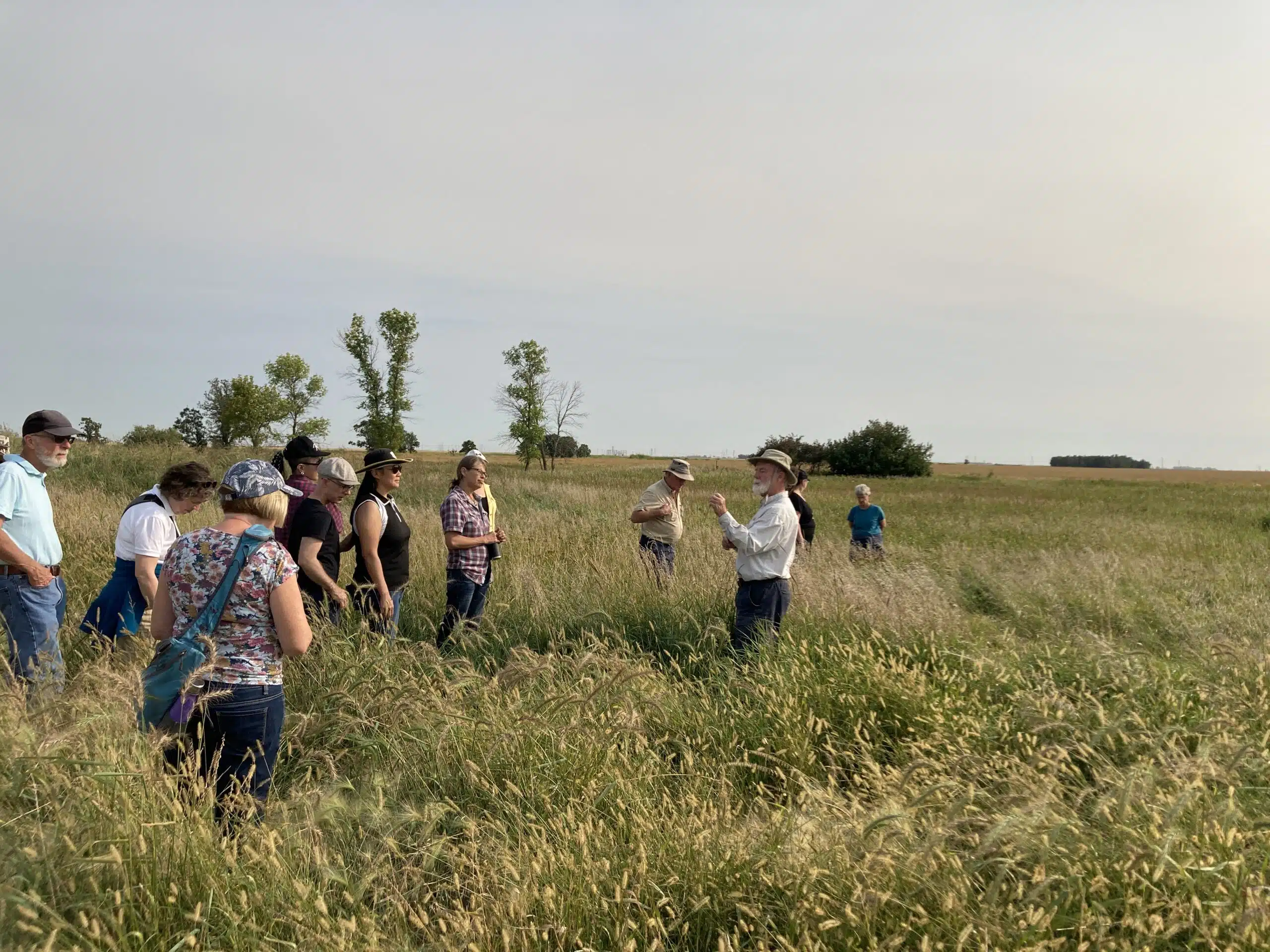
John Morgan giving CPAWS’ participants a tour of a Tall Grass Prairie reserve in Manitoba
Whether it’s organizing major projects in parks or completing smaller projects in people’s backyards, John highlighted the importance of connecting people to nature.
“It sort of depends on people’s will, and it depends on how good we are at educating people on the value of this,” John said.
“We can have native prairies forever, with all their benefits and beauty. They can and are now being reintegrated into rural and urban areas. Or they can be just a distant memory on the developed landscape. It’s our choice.”
Laura Reeves is another one who appreciates all that prairie lands have to offer — you might even have a copy of her book Laura Reeves’ Guide to Useful Plants. I talked with her for Planted, and she told me a story about a time she was reminded of the importance of giving back to the land.
She built a shelter out of sedges that she slept in, but she didn’t take it apart right after using it.
Later, when a controlled fire passed through the area, the ground underneath where her shelter stood was black and clear of plants because no light could get in. Eventually, weeds took over the patch, and it took years for native plants to return.
This was a reminder to Laura that for as much as nature gives her, she must give more to it in return.
6. People Won’t Always Understand You, and That’s OK
There are probably a few decisions in your life, big or small, that you can’t fully explain.
For some choices, you might be comfortable not having a clear why — maybe it’s just a knowing. And for others, you might make the decision and then later find logic to back it up. These choices make up who we are, defining our interests and paths in life.
Nadia Monaco is someone with a love of nature—specifically foraging for mushrooms—that people might not understand.
I won’t go into detail about her entire chapter in Planted because I don’t want to give away the story (I’ll give you a hint: she got lost in a forest when mushroom picking).
But I will say that her love of nature seems unshakable, even after having quite the adventure out in the bush.
When I interviewed her for the book, you could hear the fear in her voice as she recalled her story.
Still, when we discussed how she still goes mushroom picking, even after her intense survival experience, it was more like she was questioning why anyone would think her love for nature could ever end.
Get a Copy of Planted: Stories From Manitoba’s Natural World.
If you’d like to purchase Planted, visit my website. The book costs $25, and pickup or delivery in Winnipeg is free. Shipping in Canada is $4 per book. The ebook ($9.99) is also available for your Kobo or Kindle.
I’m donating $12.50 from every book ($5 from ebooks) to aid in Ukraine.
Each time I raise $750, I donate to a new organization. (Whenever someone gives me extra money for the book, I add it to the donation).
So far, I’ve donated $775 to Lifeline Ukraine, $770 to Cobblestone Freeway Foundation, $770 to Ukrainian Patriot, and $997 to Come Back Alive.
I’m currently raising money for the Educational Cultural and Art Center Aelita. I’ll continue to post about the organizations I donate to on my blog.
Do you have any lessons that nature has taught you? I’d love to hear them!
Send me an email to share what you’ve learned, and if you have any takeaways after reading Planted, I’d love to hear those too!
Kaitlin Vitt is a freelance writer and editor, and former Digital Marketing and Outreach Coordinator with CPAWS Manitoba.

